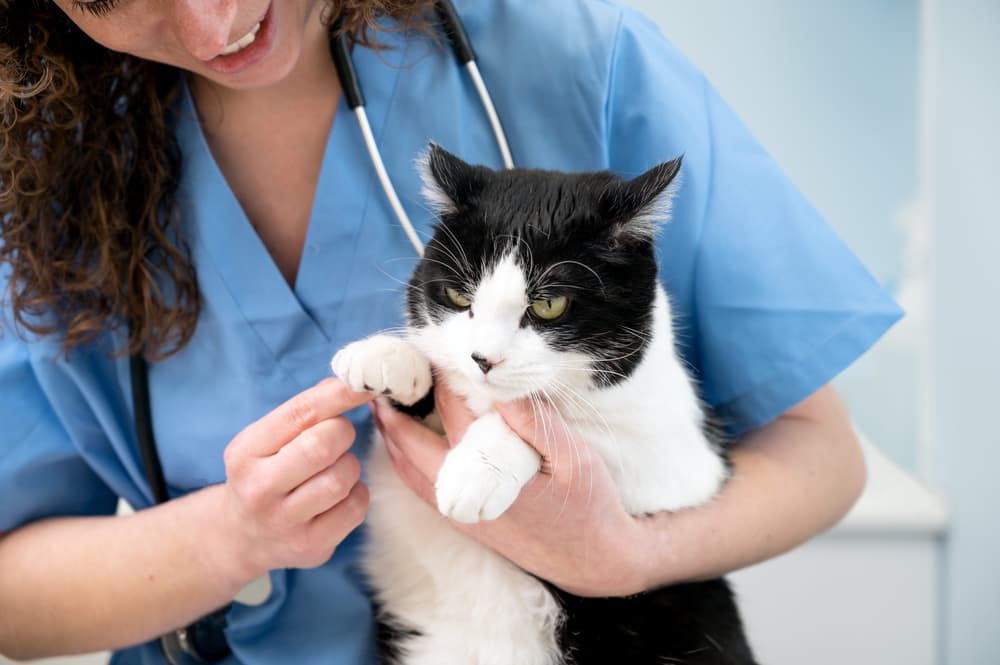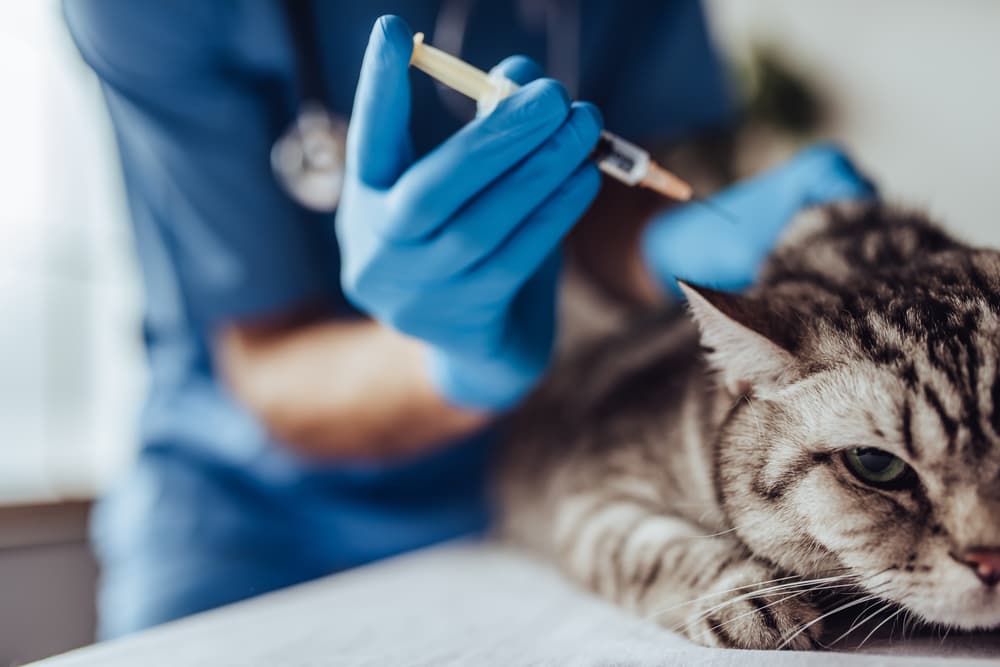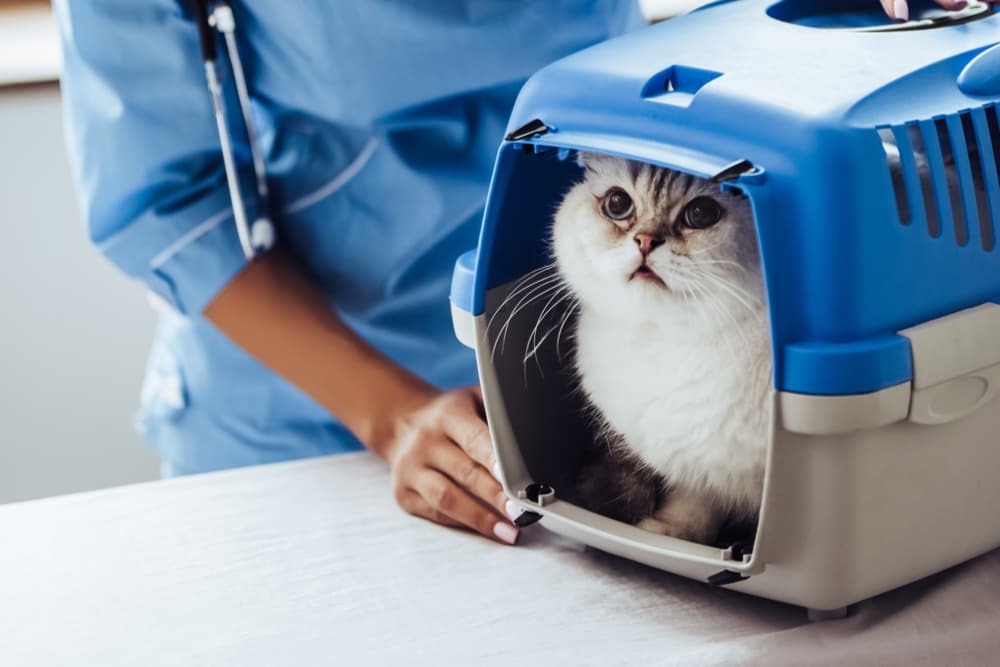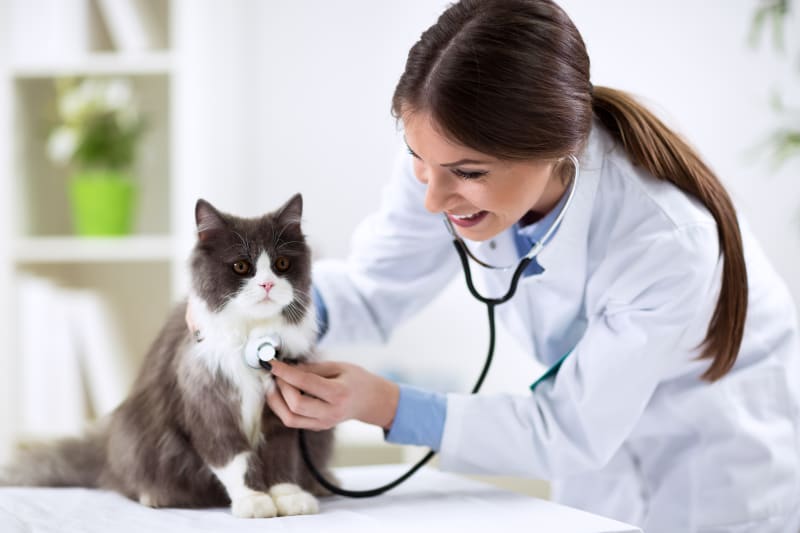Some studies recommend that under 50% of feline proprietors take their pets to the vet yearly.
Distressing however it very well might be, normal veterinary consideration is indispensable to your feline’s wellbeing, and there are ways of improving the experience for the both of you. This is the way frequently you ought to take your feline to the vet and why ordinary feline tests are so significant.
How Often Should Cats Go to the Vet?
Animal people frequently ask when and how frequently their feline ought to go to the vet, and there are different factors that add to the response to this inquiry. Age, well-being status, and way of life will all assume a part in your feline’s vet plan. All things considered, the American Animal Hospital Association suggests taking your grown-up feline in for an exam something like one time per year.

Why It’s Important to Take Your Cat to the Vet
Standard veterinary consideration all through your feline’s life is significant for some reasons. Each veterinary visit will incorporate an actual assessment which can assist your vet with distinguishing issues including skin conditions, dental illness, and even masses tracked down in or on your feline. Outside parasites, for example, bugs, ticks, or ear vermin can likewise be found and treated at vet visits.
Furthermore, regardless of whether your feline remaining parts an indoor sidekick, it is as yet critical to stay up with the latest on immunizations and yearly wellbeing testing (which incorporates an actual test, blood work, and a waste test). Routine diagnostics like these will assist your veterinarian with getting any irregularities promptly and early so suitable meds or medicines can be begun. Standard immunizations will likewise keep your feline safeguarded and vaccinated from hazardous diseases, similar to rabies. Furthermore, remember about those month-to-month bugs, ticks, heartworm, and parasite preventives!

How Often Do Cats Get Shots?
Different life stages will require various degrees of veterinary consideration. Little cats will see the vet more regularly, as antibody supporters are required oftentimes until adequate insusceptibility is accomplished. Starting at 6 to 8 weeks old enough, a cat will accept its most memorable FVRCP (Feline Viral Rhinotracheitis Calicivirus Panleukopenia) immunization. This is a mix immunization frequently alluded to as a catlike sickness immunization. It should be bolstered three to four weeks after the fact, then, at that point, three to about a month from that point forward, for a sum of three immunizations. When the last round is given, these antibodies are great for one year’s time. Cats will likewise accept their most memorable rabies immunization somewhere in the range of 13 and four months old enough.
Assuming your cat will invest any measure of energy outside, it very well might be suggested by your veterinarian that they likewise get the cat-like leukemia immunization. Cat leukemia is spread from one feline to another (not contagious to people) through natural liquids, so it is feasible for an external feline to experience another feline conveying the sickness eventually.
After your little cat has its chances, they will be all fixed or fixed (about a half year old enough). Vet visits during this time will likewise incorporate waste tests to check for digestive parasites and a month-to-month bug, tick, and parasite prevention ought to start to be given. When your feline is fixed or fixed and has its shots, they ought to be all good to go with veterinary visits until their yearly feline exam.
After your feline accepts its underlying FVRCP and rabies immunizations, it is conceivable that your veterinarian will suggest a three-year rendition of these antibodies. All things considered, grown-up felines ought to in any case be gotten for a yearly exam to evaluate for any basic medical problems. A feces test ought to be checked every year, too, regardless of whether your feline head outside.
When your feline hits 7 years old, expanding veterinary visits to regular intervals is suggested. Very much like maturing people, ailments in senior felines can emerge rapidly and without notice, making standard health tests vital. Yearly normal blood work ought to be raced to evaluate for any metabolic issues and by and large organ work.
In the event that your feline is determined to have any disease or constant condition all through their lifetime, your veterinarian might suggest an alternate yearly assessment or immunization plan for them.

Ways to carry Your Cat to the Vet
Carrying a feline to the vet may not be the simplest errand on the planet, but rather there are a couple of things you can do to assist with getting them there securely and joyfully:
Ensure your feline has an agreeable transporter. It ought to be huge enough with the goal that they fit serenely, but not excessively enormous where they will feel defenseless or bumped around in the vehicle ride. It is useful to leave the case open at home for a long time before the arrangement so your feline gets comfortable with the gear. You can put their #1 toy or a piece of clothing that scents like you in the transporter with them or energize them into the transporter with just enough catnip or treats. There are likewise pheromone showers that can be utilized as a quieting specialist. Likewise, set up the lower part of the case on the vehicle seat with a towel to even out the carton so your feline doesn’t feel worried by sitting disproportionate.
Consider curing your feline early. On the off chance that your pet is a chicken liver, share your interests with your veterinarian prior to making your arrangement, as there are prescriptions that can assist with quieting them down preceding the entire experience.
Make an arrangement for a calm time frame of the day. Attempt to plan your feline’s arrangement for a peaceful time frame of the day at the veterinary clinic or center, like early in the day or early evening. You can likewise request the calmest season of day or for a tranquil test room.
Attempt a Fear Free or felines just facility. There are a few veterinary facilities that manage felines, which might be a choice relying upon where you are found. Also, you might be intrigued to see whether your veterinary center is Fear Free Certified or utilizes low-stress taking care of strategies. This implies they play it safe to give a quiet climate to felines, as well as exercise negligible self-control during assessments and systems.


